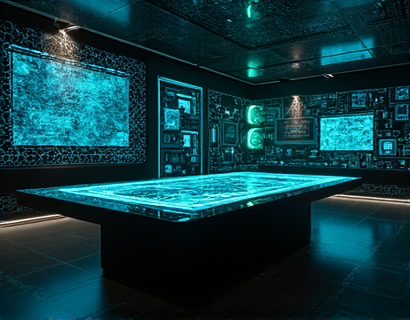Ancient Wisdom: Exploring Historical Insights and Cultural Heritage
The study of ancient civilizations and their cultural heritage offers profound insights that continue to shape our modern world. This exploration delves into the rich tapestry of human history, uncovering the wisdom and knowledge passed down through generations. From the monumental architecture of the Egyptians to the philosophical musings of the Greeks, each civilization has contributed uniquely to the collective human experience. This article aims to highlight these historical insights and the enduring cultural heritage that influences contemporary society.
The Legacy of Ancient Egypt
One of the most iconic ancient civilizations is that of Egypt, renowned for its monumental architecture and intricate hieroglyphics. The Egyptians' understanding of mathematics, astronomy, and medicine was remarkably advanced for their time. The construction of the Pyramids, particularly the Great Pyramid of Giza, stands as a testament to their engineering prowess and organizational skills. These structures were not merely tombs but also symbols of the pharaoh's divine status and the civilization's power.
The Egyptians' belief in an afterlife influenced their art and literature, with extensive texts like the Book of the Dead guiding the deceased through the underworld. Their medical knowledge, recorded in papyri such as the Ebers Papyrus, included treatments for various ailments and surgical procedures. The legacy of Egypt continues to inspire modern architecture, art, and even spiritual practices, demonstrating the enduring impact of this ancient culture.
Philosophical Contributions of Ancient Greece
Ancient Greece is often hailed as the cradle of Western civilization, thanks to its significant contributions to philosophy, democracy, and the arts. Philosophers like Socrates, Plato, and Aristotle laid the foundations for Western thought, exploring questions of ethics, politics, and metaphysics. Socrates' method of questioning, known as the Socratic method, remains a cornerstone of educational practices today.
Greek democracy, though limited to male citizens, introduced the concept of governance by the people. This idea has evolved and influenced modern democratic systems worldwide. The arts flourished during the Classical period, with playwrights like Sophocles and Euripides creating timeless tragedies, and sculptors like Phidias producing masterpieces such as the Statue of Zeus at Olympia. The cultural and intellectual achievements of ancient Greece continue to resonate in contemporary society.
Roman Engineering and Legal Systems
The Roman Empire, building on Greek achievements, made substantial advancements in engineering and law. Roman engineers developed sophisticated systems for aqueducts, roads, and public baths, ensuring the efficient flow of water and the maintenance of public hygiene. The Colosseum, an engineering marvel, could accommodate up to 50,000 spectators and exemplifies Roman architectural innovation.
Roman law, codified in the Twelve Tables and later the Corpus Juris Civilis, has had a profound influence on modern legal systems. Concepts such as the presumption of innocence and the right to a fair trial have their roots in Roman jurisprudence. The Roman legal framework has been adopted and adapted by numerous countries, underscoring the lasting impact of Roman legal thought.
Asian Wisdom: Buddhism and Confucianism
Asian civilizations, particularly in India and China, have contributed immensely to global cultural heritage through their spiritual and philosophical systems. Buddhism, founded by Siddhartha Gautama (the Buddha), emphasizes the path to enlightenment and the cessation of suffering. Its principles of compassion, mindfulness, and non-attachment have spread across Asia and beyond, influencing various cultures and practices.
Confucianism, developed by Confucius, focuses on ethical behavior, social harmony, and the importance of education. Its teachings on filial piety, respect for authority, and moral integrity have shaped East Asian societies for millennia. The Confucian emphasis on education and moral leadership continues to influence modern governance and social structures in countries like China, Japan, and Korea.
Indigenous Wisdom and Natural Harmony
Indigenous cultures around the world possess a deep understanding of their environments and a profound connection to nature. These communities have developed sustainable practices that maintain ecological balance and preserve biodiversity. For instance, the Native American concept of the "Seventh Generation" encourages decisions to consider their impact on future generations, promoting long-term sustainability.
Similarly, Aboriginal Australian cultures have a rich oral tradition and a deep spiritual connection to the land, known as the Dreamtime. Their knowledge of plants, animals, and natural cycles has been crucial for survival and is increasingly recognized for its ecological wisdom. Indigenous practices offer valuable lessons in living in harmony with nature, a message increasingly relevant in today's environmental challenges.
Preserving Cultural Heritage
The preservation of cultural heritage is essential for maintaining the diversity and richness of human history. This involves protecting physical artifacts, sites, and monuments, as well as intangible heritage such as languages, traditions, and knowledge. Organizations and governments worldwide are implementing measures to safeguard these treasures for future generations.
UNESCO's World Heritage List highlights sites of outstanding universal value, promoting their conservation and raising awareness of their significance. Efforts to digitize and archive historical documents, texts, and oral histories ensure that knowledge is not lost to time. Community involvement in heritage preservation also plays a crucial role, fostering a sense of pride and ownership among local populations.
Timeless Teachings and Modern Relevance
The insights gained from studying ancient civilizations offer timeless teachings that remain relevant today. The emphasis on ethical living, community well-being, and environmental stewardship found in many ancient cultures aligns with contemporary values. For example, the Stoic philosophy of living in accordance with nature resonates with modern environmental movements.
Moreover, the problem-solving and critical thinking skills developed by ancient scholars continue to inspire modern education and research. The holistic approach to health and wellness, evident in traditional medicine systems, complements contemporary medical practices. By revisiting and integrating these ancient wisdoms, we can address current challenges with a broader and more nuanced perspective.
Conclusion
The exploration of ancient wisdom and cultural heritage provides invaluable insights into the human experience. From the architectural marvels of Egypt to the philosophical depths of Greece, each civilization has left an indelible mark on our world. By honoring and learning from these legacies, we can foster a deeper appreciation of our shared history and a more sustainable future. The enduring cultural heritage of ancient civilizations continues to guide and inspire us, bridging the gap between past and present.










































